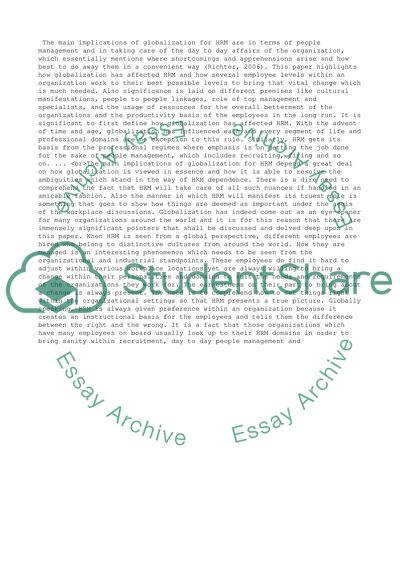Cite this document
(“Critically assess the main implications of globalisation for HRM, and Essay - 1”, n.d.)
Critically assess the main implications of globalisation for HRM, and Essay - 1. Retrieved from https://studentshare.org/business/1475644-critically-assess-the-main-implications-of
Critically assess the main implications of globalisation for HRM, and Essay - 1. Retrieved from https://studentshare.org/business/1475644-critically-assess-the-main-implications-of
(Critically Assess the Main Implications of Globalisation for HRM, and Essay - 1)
Critically Assess the Main Implications of Globalisation for HRM, and Essay - 1. https://studentshare.org/business/1475644-critically-assess-the-main-implications-of.
Critically Assess the Main Implications of Globalisation for HRM, and Essay - 1. https://studentshare.org/business/1475644-critically-assess-the-main-implications-of.
“Critically Assess the Main Implications of Globalisation for HRM, and Essay - 1”, n.d. https://studentshare.org/business/1475644-critically-assess-the-main-implications-of.


